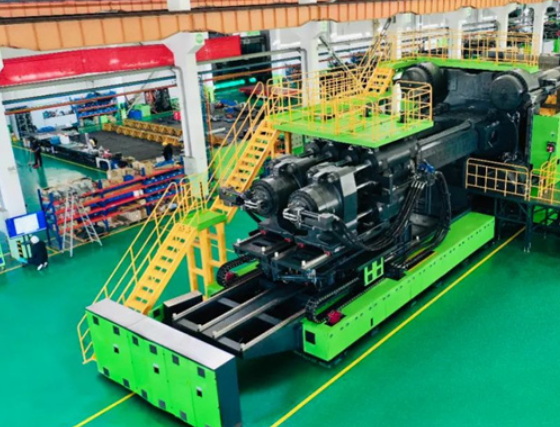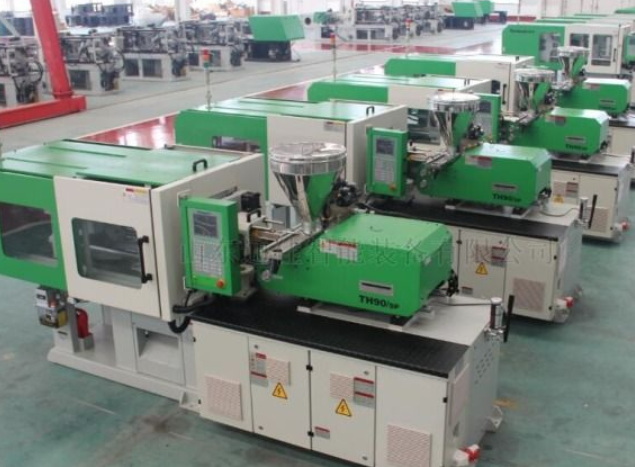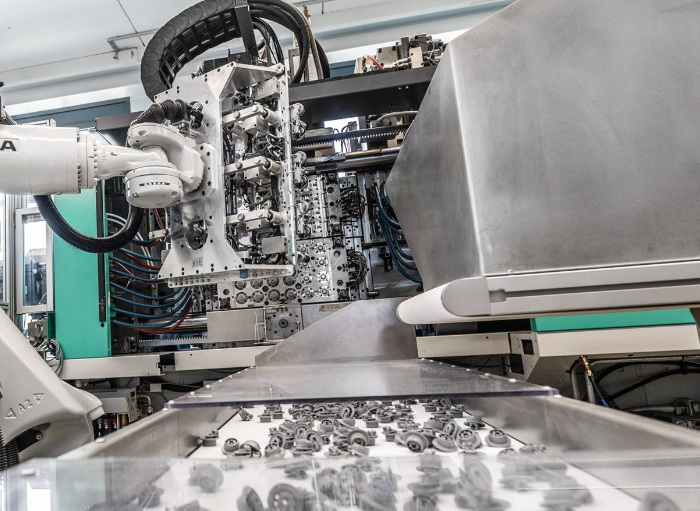Content Menu
● Overview of Plant Protein Extrusion in China
● Key Factors in Evaluating Suppliers
>> 1. Equipment Quality and Innovation
>> 2. Customer Service and Support
>> 3. Regulatory Compliance
>> 4. Material Compatibility and Customization
>> 5. Sustainability and Environmental Impact
● China Plastic Extrusion Equipment in Context
● Market Trends and Future Outlook
● Challenges and Opportunities
● Conclusion
● FAQ
>> 1. What are the key technologies used in plant protein extrusion?
>> 2. How important is regulatory compliance for plant protein extrusion equipment suppliers?
>> 3. What role does customization play in plant protein extrusion equipment?
>> 4. How does sustainability impact the choice of plant protein extrusion equipment?
>> 5. What are the challenges in scaling up plant protein extrusion production?
The Chinese plant protein market is rapidly expanding, driven by increasing demand for sustainable and healthy food options. As a result, the need for reliable plant protein extrusion equipment suppliers has become more critical than ever. Evaluating these suppliers involves several key factors, including equipment quality, technological innovation, customer service, and regulatory compliance. In this article, we will delve into these aspects and provide insights on how to choose the best supplier for your plant protein extrusion needs.

Overview of Plant Protein Extrusion in China
Plant protein extrusion is a process that transforms plant-based proteins into textured products with a meat-like structure. This technology is crucial for producing plant-based meat alternatives, which are gaining popularity globally. China, with its large market and manufacturing capabilities, is a significant player in this industry. The country's ability to produce high-quality equipment at competitive prices makes it an attractive option for businesses worldwide.
Key Factors in Evaluating Suppliers
1. Equipment Quality and Innovation
When evaluating suppliers, it is essential to consider the quality and innovation of their equipment. Look for suppliers that use advanced technologies, such as twin-screw extruders, which offer better control over temperature and shearing forces, crucial for creating complex textures. Twin-screw extruders are particularly beneficial because they allow for precise mixing and processing of ingredients, ensuring consistent product quality.
Video: Twin-Screw Extruder in Action
Twin-screw extruders are versatile and can handle a wide range of plant proteins, from soy and pea proteins to rice and corn proteins. Their ability to process these materials efficiently makes them ideal for large-scale production.
2. Customer Service and Support
Good customer service is vital for ensuring that any issues with the equipment are addressed promptly. Look for suppliers that offer comprehensive after-sales support, including installation assistance, training, and maintenance guidance. This support is crucial for minimizing downtime and ensuring that production runs smoothly.
Customer service also includes providing spare parts and technical support. Suppliers should have a responsive team that can troubleshoot issues quickly and provide solutions to keep production on track.
3. Regulatory Compliance
Ensure that the supplier complies with relevant regulations, such as China's GB Standards for food machinery. Compliance is crucial for ensuring the safety and quality of the final products. Regulatory standards cover aspects such as material safety, hygiene, and environmental impact.
Table 1: Regulatory Compliance Checklist
| Regulation | Description |
| GB 16798-2020 | Safety and Hygiene Requirements for Food Machinery |
| GB 4806.9-2022 | Stainless Steel Grades for Food Contact Surfaces |
Compliance with these regulations not only ensures product safety but also helps manufacturers avoid legal issues and maintain a good reputation in the market.
4. Material Compatibility and Customization
The equipment should be compatible with a variety of plant proteins and allow for customization to meet specific product requirements. This includes the ability to design custom dies for different textures and shapes. Customization is key to creating diverse plant-based products that cater to different consumer preferences and market demands.
For instance, manufacturers might want to produce plant-based burgers with a texture similar to beef or create chicken-like strips from plant proteins. The ability to customize the extrusion process allows for these variations.
5. Sustainability and Environmental Impact
Consider suppliers that prioritize sustainability, such as using energy-efficient equipment and minimizing waste in the production process. Sustainable practices not only reduce environmental impact but also appeal to consumers who are increasingly environmentally conscious.
Sustainable manufacturing practices can include using renewable energy sources, reducing water consumption, and implementing recycling programs for waste materials. These practices contribute to a more eco-friendly production process.

China Plastic Extrusion Equipment in Context
While plant protein extrusion focuses on food products, China plastic extrusion equipment is often used in parallel industries, such as manufacturing packaging materials for plant-based products. The principles of extrusion technology are similar across both industries, emphasizing the importance of precision and control in the manufacturing process.
China plastic extrusion equipment is widely used for producing plastic packaging, which is essential for protecting and preserving plant-based food products during transportation and storage. The quality of this packaging directly impacts the shelf life and freshness of the products.
Market Trends and Future Outlook
The plant protein market is expected to continue growing as consumers become more health-conscious and environmentally aware. This trend presents opportunities for suppliers to innovate and expand their offerings. Suppliers who can adapt to changing market demands by offering versatile and sustainable solutions will be better positioned for success.
Innovation in plant protein extrusion technology is also driven by advancements in biotechnology and food science. New protein sources, such as algae and insect proteins, are being explored, offering potential for further diversification in the industry.
Challenges and Opportunities
Despite the growth opportunities, there are challenges in the plant protein extrusion industry. One of the main challenges is scaling up production while maintaining product quality. This requires careful planning and investment in high-capacity equipment that can handle increased volumes efficiently.
Another challenge is ensuring consistent supply chains for raw materials. Fluctuations in raw material prices or availability can impact production costs and schedules. Building strong relationships with suppliers and diversifying raw material sources can help mitigate these risks.
Conclusion
Evaluating China plant protein extrusion equipment suppliers requires a comprehensive approach that considers equipment quality, customer service, regulatory compliance, material compatibility, and sustainability. By focusing on these factors, businesses can ensure they partner with suppliers who meet their needs and contribute to the growth of the plant-based food industry.

FAQ
1. What are the key technologies used in plant protein extrusion?
Plant protein extrusion primarily uses twin-screw extruders, which provide precise control over temperature and shearing forces, allowing for the creation of complex textures similar to meat.
2. How important is regulatory compliance for plant protein extrusion equipment suppliers?
Regulatory compliance is crucial as it ensures that the equipment meets safety and hygiene standards, which is vital for producing safe and high-quality plant-based food products.
3. What role does customization play in plant protein extrusion equipment?
Customization allows for the production of a wide range of textures and shapes, enabling manufacturers to create diverse plant-based products tailored to different markets and consumer preferences.
4. How does sustainability impact the choice of plant protein extrusion equipment?
Sustainability considerations, such as energy efficiency and waste reduction, are increasingly important. Suppliers that prioritize these aspects can help manufacturers reduce their environmental footprint.
5. What are the challenges in scaling up plant protein extrusion production?
Scaling up production requires careful planning, including ensuring that equipment can handle increased volumes without compromising product quality. Partnering with experienced suppliers can help mitigate these challenges.













